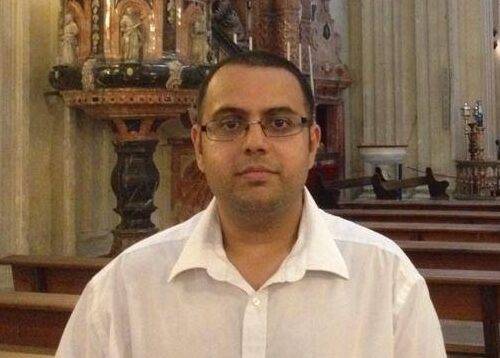General Benny Gantz is today’s rising star in Israeli politics. Despite having no previous political experience, many think he could be the man to dethrone Israeli Prime Minister Benjamin Netanyahu.
An army man, Gantz was chief of staff under Netanyahu’s government between 2011 and 2015, overseeing not only Israel’s 2012 attack on Gaza, but also Operation Protective Edge, Israel’s devastating 2014 war on the besieged Strip which left over 2,000 Palestinians dead.
Within a few hours of Netanyahu calling the April election, Gantz announced his intention to run for prime minister as head of a new party, the Israel Resilience (Hosen L’Yisrael) party.
For weeks after this initial announcement, Gantz refused to reveal any policies or the political leaning of his new party. This silence unnerved Netanyahu, who struggled to attack his new-found opponent or stop Gantz’s rapid climb in the polls.
When he eventually broke his silence, Gantz revealed a right-leaning, centrist party with a focus on security, vowing to put “Israel before everything.”
Gantz has promised to take a tough line against Hamas, Iran, and Hezbollah. However, he has also promised to amend Israel’s controversial Nation-State Law in order to attract support from the country’s Arab Druze population.
The Road to Knesset: Likud Party #Israelex19
What does Gantz say about Palestinians in the occupied territories?
Gantz has been sending mixed messages about the occupied territories. His campaign released a video showing a bomb-flattened neighbourhood in Gaza after the 2014 war he led, saying “only the strong wins”. In fact, Gantz is being sued by a Gazan family in a Dutch court for war crimes.
Yet in another video he said that there is “no shame in yearning for peace” and has promised to strive towards a deal with the Palestinians.
Gantz has also said that under his administration, “there won’t be unilateral actions to dismantle settlements” in the occupied West Bank.
#IsraElex19: Israeli Elections 2019
“We will not build wildly, which will foil diplomatic opportunities, but we will not freeze settlements [either]. They are strategic and spiritual assets and will remain so forever.”
Gantz also declared he wants the Jordan Valley, which runs down the eastern side of the occupied West Bank and would constitute an integral part of any potential future Palestinian state, to be Israel’s border.
Could Gantz really end Netanyahu’s reign?
In a bid to unseat Netanyahu, Gantz has enlisted the support of other centrist political parties. Yair Lapid, head of Israel’s main centrist party, Yesh Atid, has agreed to run with Gantz on a joint ticket, with the understanding that they would rotate the premiership. Gantz would serve as prime minister of Israel for the first half of the 5-year term, while Lapid would serve the other second half. Together they formed the ‘Blue and White’ (or Kahol Lavan) alliance.
Lapid has been on the political scene for many years, but, until he formed this alliance with Gantz, few believed he would ever lead a government.
Blue and White has attracted support from other former military figures including Moshe Ya’alon and Gabi Ashkenazi, leading the media to refer to them as ‘the boys’ club’.
To form a government, Gantz may need the support of Hadash-Ta’al, a predominantly Arab-Israeli alliance led by Ayman Odeh. Odeh has said that Hadash-Ta’al is open to the idea of working with Gantz to oust Netanyahu and his Likud party from government, in return for concessions benefitting Israel’s 1.8 million Palestinian citizens. Gantz, however, has said that he would only form a government with ‘Jewish and Zionist’ allies, effectively ruling out the possibility of cooperating with Arab-Israeli parties.
Although Gantz seems to be the only serious contender to unseat Netanyahu, his apparent refusal to work with Arab-Israeli parties could prove disastrous for his election prospects. By ruling out working with these parties, Gantz could find himself unable to garner the 61 seats needed to form a majority government in the 120-seat Knesset after 9 April.
(Video editing by Abdelrahman Said)










